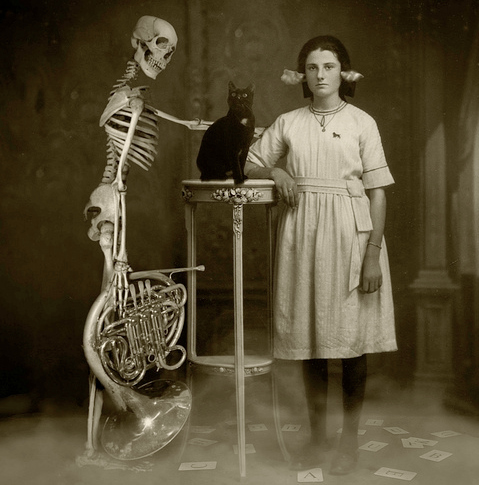
E Pluribus Unum
for Two Horns and Strings
September 29--December 23, 2012
Duration: about 20 minutes
Premiere
performance was by the Ciompi Quartet
with hornists Chris Caudill and Rachel Niketopoulos, joined by bassist
Robbie Link, at the NC Museum of Art, March 6, 2016.
Video of premiere
MP3 recording Wav recording (CD quality)
Full Score,
PDF letter size Cover
All
parts, letter size, f&b
Horn parts also available suitable for electronic music readers, letter-size with the other part included in reduced size.
Horn 1 part (E-Reader) Horn 2 part (E-Reader)
Intro to WHQR broadcast of EPU on May 9, 2016 by Pat Marriott
I.
The
Harmonic Series [5:58]
Adagio alexandria
II. Completely Legal Theme and Three Variations [6:34]
III. This is The End
[6:18]
Vivace con sanguinamento
labbra
Chris Caudill and Rachel Niketopoulos
are a couple living here in Raleigh who are hornists in the North Carolina
Symphony. I have admired their playing for some time, which got me to thinking
of something to write for them. I had a chance to meet Rachel at their home,
festooned with innumerable cats, at a gathering of Alexander Technique people,
where I went at the invitation of Eric Pritchard, my long-time collaborator.
In 1990 I wrote a series of pieces for
consideration by the Air Force band musicians at Warner Robins AFB, as my
friend Fred Robinson (no relation) worked as a composer and arranger there. The
largest piece was the Munster Variations
for concert band, based on trash TV themes from the ‘60s. (Perfectly legal due
to parody usage; see the many lawsuits about Barbie-based art that Mattel
cannot stop.) However this piece was abandoned after one disastrous
read-through and never performed. I took one of the variations as the theme for
the middle movement of this work, and used some of the few good ideas much
altered in the variations.
There is a decided lack of large
orchestral works in my catalog, since the ones I have are almost impossible to
get performed, and if they are someday, it will be very difficult to get use of
the recordings. As a result all my large works have chamber versions. This
piece fits nicely into that category, since it can be performed either with two
horns and string orchestra, or with two horns, string quartet, and double bass.
(In time there might be a version for two horns and two pianos as well.) I
usually find that the textures are entirely thick enough without divisi, and I
use this as an excuse for simplicity.
Performance notes
The two horns should be spaced apart from each other, left and right,
to accentuate the frequent antiphonal effects
Accidentals hold through the measure
and not beyond, and do not refer to other octaves. Sometimes I include courtesy
accidentals to avoid confusion.




